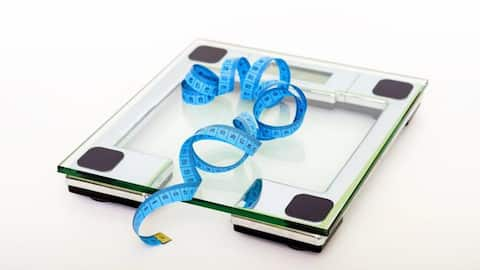You can lose weight without dieting. Here's how
What's the story
Dieting undoubtedly can help you burn off those extra pounds and lose excess fat. Although cutting back on food might help some gain a more toned figure, many people find it difficult to follow rigorous diets because they find it inconvenient to track calories and give up their favorite meals. Fortunately, there are several effective methods for losing weight without dieting.
Food variety
Eat a variety of foods
Lacking a nutrient for a long time can cause health problems. The best way to get various nutrients is by consuming a variety of foods. Lean protein, complex carbs from fruits, vegetables, and whole grains, as well as "good" fats including omega-3 fats from fish and monounsaturated fats from avocados, almonds, and olives/olive oil, should all be a part of your diet.
Portion control
Practice portion control
Since most people eat more when provided larger portions, plate and portion sizes have increased over time, so you might be eating more than you know. Using a smaller plate can help you eat less by making portions look larger. Serving nutrient-dense, low-calorie foods on larger plates and high-calorie foods on smaller plates will help you take advantage of this.
Sleep
Get more sleep
People often overeat and make poor food choices later after a rough night of sleep because sleep deprivation activates a region of the brain that regulates appetite. Additionally, the body produces more ghrelin, the hunger hormone, and less leptin, the hormone that helps you feel full, when you don't get enough sleep. Besides, staying up late boosts cravings for unhealthy foods.
Hydration
Drink more water
For those who do not prefer dieting, making the transition to drinking more water is a wise weight loss strategy. According to research, drinking water before meals can help you eat less, feel a fuller stomach, and thus aid in weight loss eventually. Water has less calories than calorically dense beverages like soda or juice, thus the impact might be even more pronounced.
Slow eating
Embrace slow eating
It takes time for your brain to register that you have eaten enough. Eating slower allows the brain to detect fullness which helps people reduce their daily calories. Eating slowly and chewing your food well leads to lower portion sizes, increased fullness, and decreased food intake. Eat with mindfulness, concentrating on and appreciating each bite while avoiding digital or other distractions.
Exercise
Add movement
This goes without saying, but to reach or stay at a healthy weight, it is preferable to combine exercise with a balanced diet. Reducing your calorie intake can aid in weight loss, but it can also cause your metabolism to slow down. It is recommended to workout for at least 150 minutes each week. You could opt for a low-impact activity like walking.
